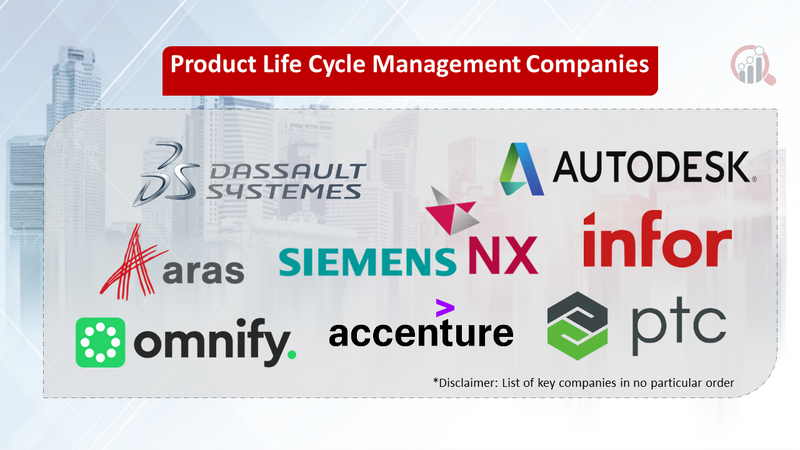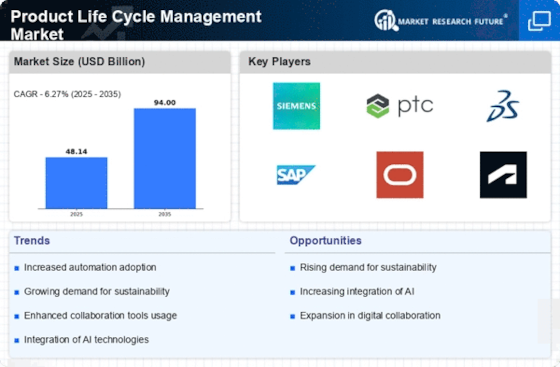Top Industry Leaders in the Product Life Cycle Management Market

Competitive Landscape of Product Life Cycle Management Market: A Comprehensive View
The Product Life Cycle Management (PLM) market growth is driven by the increasing need for streamlined product development, improved collaboration, and accelerated time-to-market across various industries. As the market landscape evolves, understanding the competitive dynamics becomes crucial for established players and aspiring entrants alike.
Key Players and Strategies:
-
Dassault Systèmes
-
Autodesk, Inc.
-
PTC
-
Siemens PLM Software
-
Apparel magic
-
Oracle Corporation
-
SAP SE
-
Infor, Inc.
-
Aras Corporation
-
Arena Technologies
-
Omnify software
-
Infor Company
-
Accenture PLC (the U.S.)
Factors for Market Share Analysis:
-
Market Share by Deployment Type: The cloud deployment segment is rapidly growing, expected to reach a CAGR of 7.4% during the forecast period. This shift is driven by factors like reduced upfront costs, increased accessibility, and easier upgrades.
-
Market Share by Industry: The automotive, aerospace & defense, and consumer goods industries are major contributors to the PLM market. However, industries like life sciences and healthcare are witnessing significant growth due to regulatory compliance requirements and complex product development processes.
-
Market Share by Functionality: Core PLM functionalities like product data management, collaboration tools, and bill of materials (BOM) management remain essential. However, advanced functionalities like digital twins, artificial intelligence (AI)-powered analytics, and integration with Internet of Things (IoT) solutions are gaining traction.
Current Company Investment Trends:
-
Cloud-Based Solutions: Established players are investing heavily in developing and migrating their PLM offerings to the cloud. This includes acquiring cloud-based PLM companies and building robust cloud infrastructure.
-
Industry-Specific Solutions: Companies are tailoring their PLM solutions to specific industry needs and regulations. This involves developing specialized functionalities and partnerships with industry leaders.
-
AI and IoT Integration: Integration of AI for predictive maintenance, process optimization, and data-driven decision-making is gaining traction. Additionally, IoT integration is enabling real-time product data collection and feedback loops.
-
Subscription-Based Models: Moving away from perpetual licenses, companies are adopting subscription-based models for increased flexibility and recurring revenue streams.
Challenges and Opportunities:
-
Data Security and Integration: Ensuring data security and seamless integration with existing systems remain critical challenges for PLM adoption.
-
Changing Customer Needs: Keeping pace with evolving customer needs and technological advancements requires continuous innovation and adaptation.
-
Competition from Niche Players: Established players need to be mindful of the threat posed by niche players offering specialized solutions.
Latest Company Updates:
-
Dec 12, 2023: Siemens PLM Software announced the launch of Solid Edge 2024, their flagship 3D design software, with new features for cloud collaboration and manufacturing automation.
-
Nov 30, 2023: Aras Corp. unveiled the Aras Innovator 2024 release, offering enhanced digital twin capabilities and improved integration with IoT platforms.
-
Oct 25, 2023: Autodesk announced the acquisition of Moldflow, a leading provider of mold simulation software, strengthening its PLM offerings for the plastics industry.










